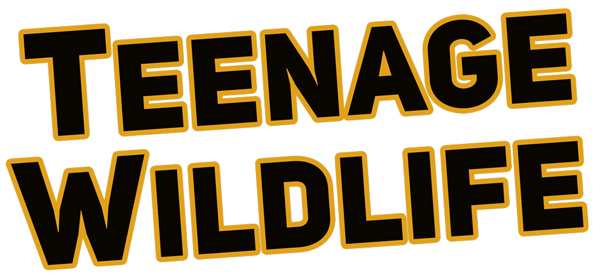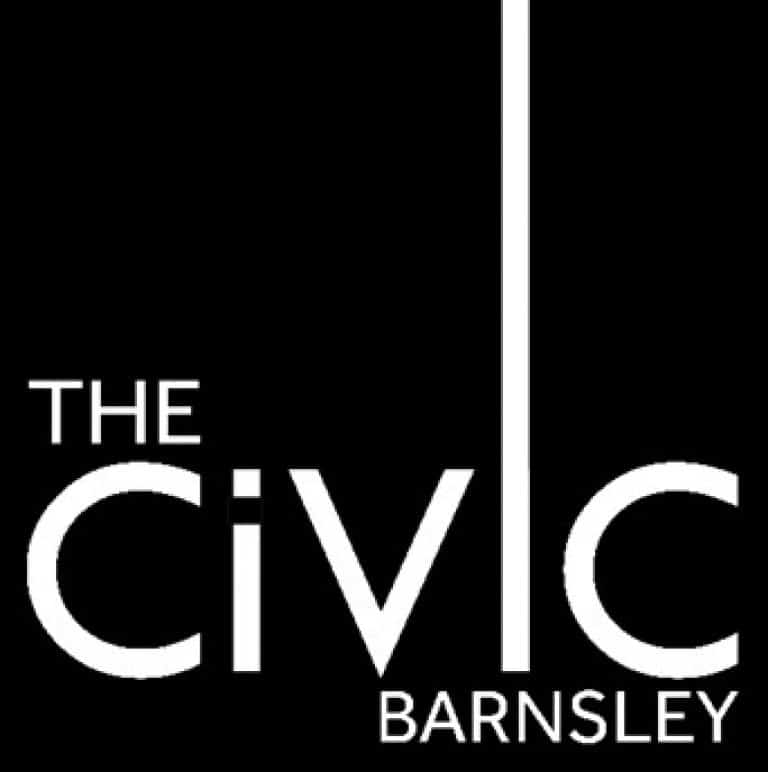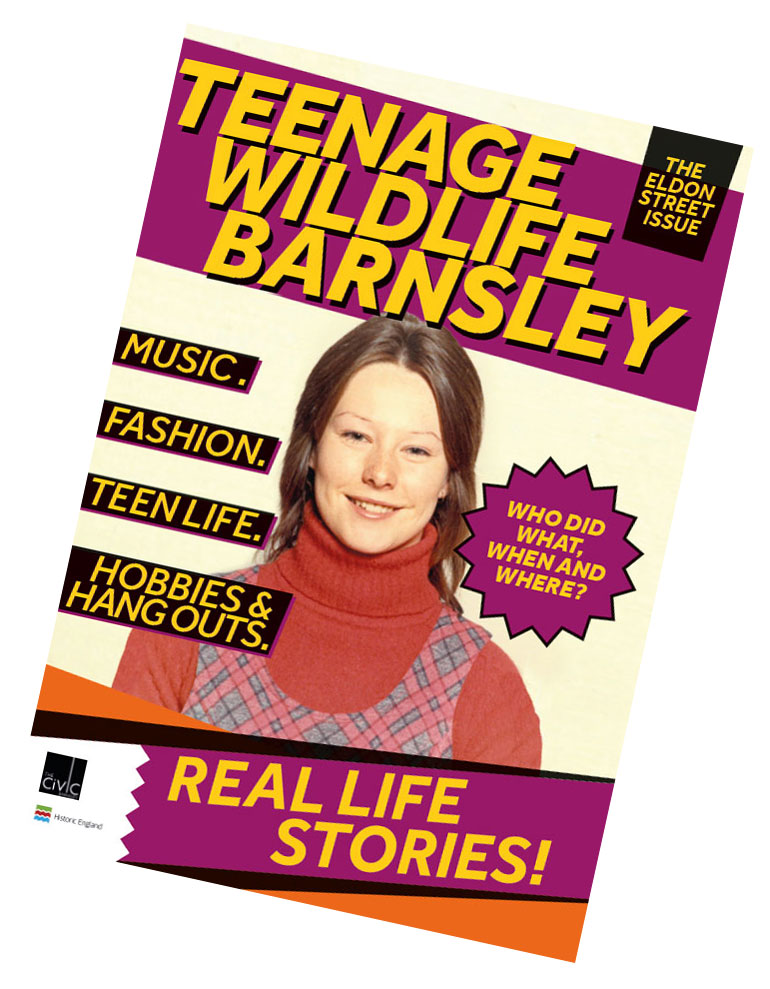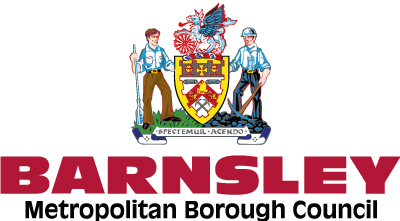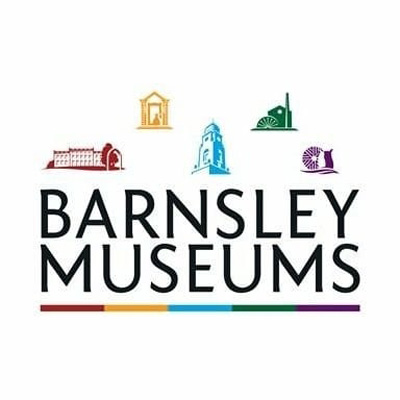Now and Then: Teenage Life in Barnsley
Now & Then
The Teenage Wildlife project invited people to share their memories about Eldon Street but we also captured a wide range of reminiscences about universal topics relating to the teen experience. These included experiences of school, hobbies and interests, music and fashion, pocket money and part-time jobs, as well as wider themes including their aspirations and dreams, their relationships with family and friends, and issues such as bullying, mental health and worries about the world.
The people we interviewed spoke candidly about their lives as teenagers, reflecting on what they might have done differently, what advice they might give their teen selves, as well as considering the differences between teenagers now and then.
David - 50s/60s teen
“I was very quiet and shy, at school I didn’t feel settled, ‘cos I were bullied. When I left, I didn’t want a job, I wanted to carry on as I were, being a lad and going down Cawthorne basin, in the woods, fishing. I wanted to carry on doing that but I got a rude awakening, I had to find a job. I never wanted to go to the pit but I finished up at Haigh Colliery in 1960. Believe me, it was a very, very rude awakening for me. It made a man of me. I’d still do same thing but I’d go back and make a better job of it. If I could go back, I wish my dad had lived, and I’d learnt a trade, I might have been a joiner. But I did love being in the pit, and if anybody ever asks you, ‘Would you go back?’ everybody says no but I would have gone back. Definitely. Hundred percent. It was very hard to get into, I think I was about 25 before I really adapted to the mine. The miner’s camaraderie, a laugh and a joke and hard work in between. Never did anybody any harm, I’m still here. I don’t think there’s as many jobs about now, thousands and thousands of people worked in pits. If you’re looking for a job now, you don’t get that, your vast employers are gone aren’t they? The steelworks and your mines, you’ve got to be creative these days, have a bit of knowledge and education.”
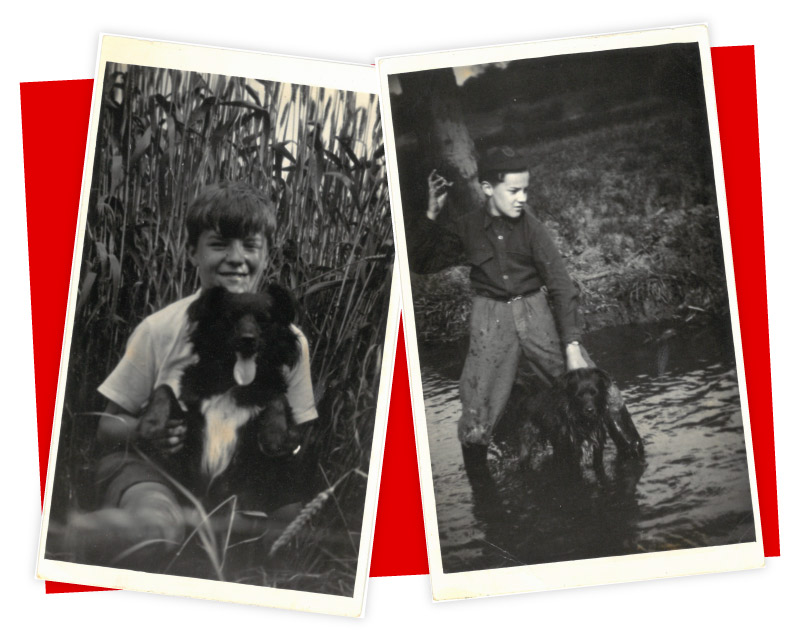
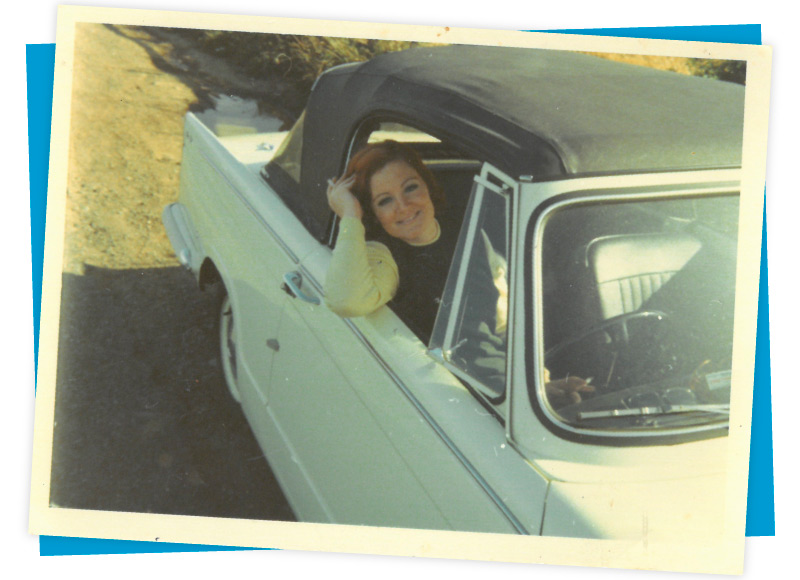
Maureen – 60s teen
“When I was in the Barnsley Lambretta club, we used to go to go to either Filey or Whitby or Scarborough. All of us, there must have been 20-odd of us on Lambrettas. Mainly guys, really, I suppose. But it was such fun, off we went. And that’s before, you know, the roads are like they are today. I felt happy. They used to take their girlfriends, so there was always a good number of men and women. I remember getting very burnt in Scarborough. It was Easter, one of the hottest ones there’s ever been. We were playing on the beach. And this time I was riding pillion, and I only just managed to get on, I got so sunburnt, and then the drive back which took a long time, that they had to lift me off the scooter. And I was two weeks off work. But no, it was great fun. That was my entertainment. We never used to drink very much those days. We always liked to puff on a cigarette now and again, but that’s what’s the main thing and the very young ones can drink, so I think that’s different. Also in my day, when you had a boyfriend, they would never be staying over with you, like they do today.”
Wayne – 60s/70s teen
“It’s a cliche now but you hear it so many times, we’d go out at dawn and come back in at dusk. And that were it, you were just wandering about, mucking about. I think education started for me when I left school. I just sort of went through school, I weren’t academic, poor at writing and maths were a struggle for me, all these academic subjects. The practical subjects did really well, me and my pal we’d always be the first or second, vice versa, all through school, and that were woodwork, metalwork, technical drawing, all them sort of practical sort of things, we did excel at, and that’s what I was destined for. I didn’t want to leave school because I loved the camaraderie. When you’re 15, or 16, you know everything, anybody older knows nothing, and you’re dead cocky, and you need to learn, you need to be brought down to earth you know what I mean. Because you think you’ve been at the top of the tree haven’t you? But then you leave school and you go back down to the absolute bottom. It’s like moving up schools, when you’re in the fourth year, at junior School, your cock a hoop, aren’t you? Because everybody else is below you but then you go to the first year of the senior school, and you’re the bottom of the bottom. And that same sequence happens at work don’t it? But nevertheless, you’ve still got that cockiness of youth that makes you think anybody else who would older, two years older than me knows nothing and I know everything.”
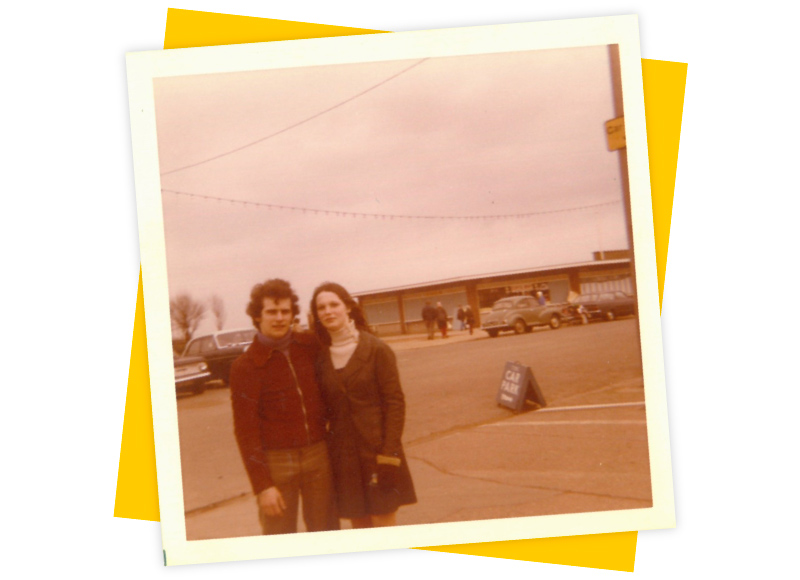
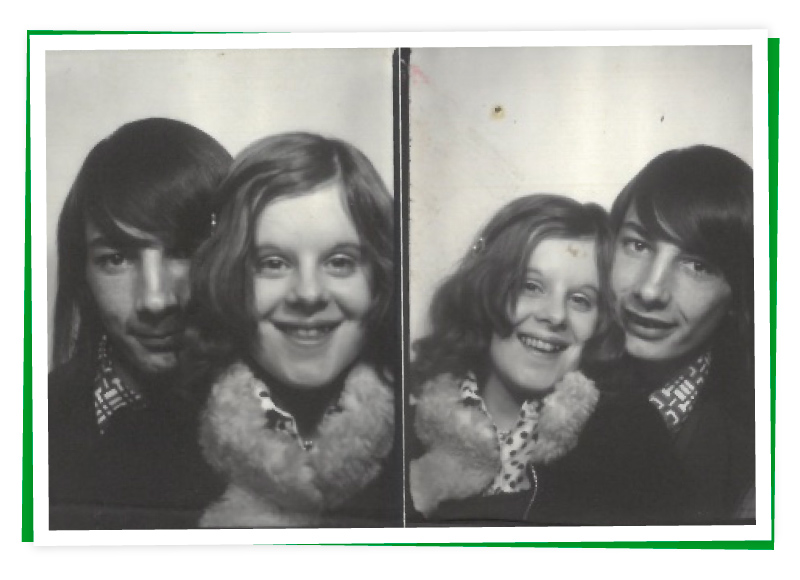
Kath – 70s teen
“I went to St Helen’s secondary modern, and I hated it. It was typical of the secondary modern school in the ‘70s. It was sexist. It was geared towards putting children in boxes. For example, we were only allowed, as girls, to take science for the first year. After that, the boys could do science, we could do biology, that were our part of science, that’s what we needed to know. And I can remember that year of science, learning how to change a plug on a kettle, because we might need to make a cup of tea for our husband when he came home from work, preparing us to be wives and mothers, which I’m happy to say that I was able to do but maybe you know, you can do a little bit more besides. And even then, there was that feeling I think that, you know, I don’t want just to be a wife and mother, I want to do something else. I’d say concentrate on education more. Just take whatever education was on offer. Just get any qualifications that you could. It worked out for me getting married – I wouldn’t advise anybody to do that. It was really hard. I would just say, concentrate on your education, find out who you are. It’s about opportunities, it’s about options. Get your qualifications, if you want to go and sweep the road, and that’s gonna make you happy, that’s absolutely fine, do it. But it’s about having a choice.”
Catherine – 70s teen
“I think teens nowadays are under a lot of pressure to go to university, and I think a lot of them think that’s the be all and end all. Whereas I think there’s other ways to learn through life and experiences. You can still achieve a high level by not going to university. And there’s that many going to university now that can’t get a job when they’re finished, end up back at McDonald’s. I feel sorry for them to go through that they get debt and then have that hanging over them at a time when you need money. If you want to buy a property or you’re saving up for a deposit for a house, to have that debt hanging over you, it must be an awful pressure to think that it’s always going to be there.
There were none of this Facebook and people pulling you to pieces that there is now. They’ve got all this pressure on them. I think it’s soul destroying. It seems it to me, and I’m glad I’m not a teenager now with all the pressure. It were simpler times then. All you thought about were what you were wearing to go to work and what you were wearing to go out at weekend, and that were it, and what music you were listening to. I think it’s all too much for them now. Everyone’s bombarded and from all sides.”
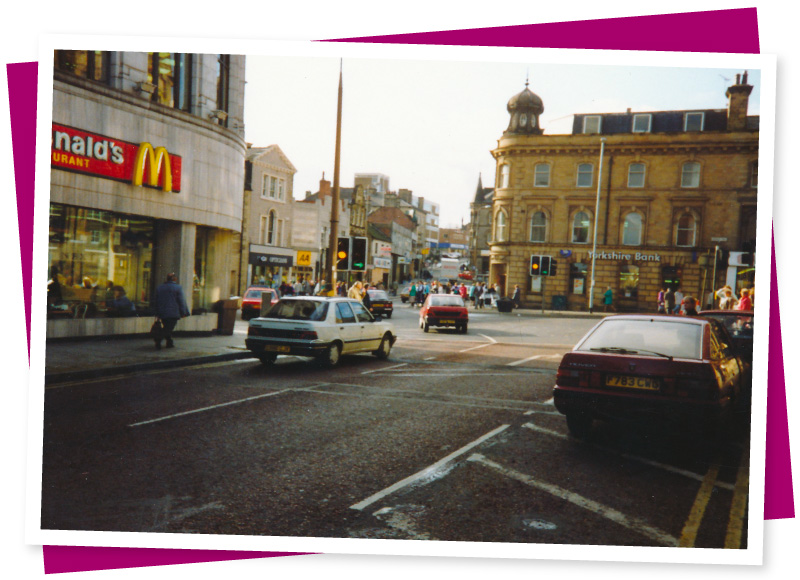
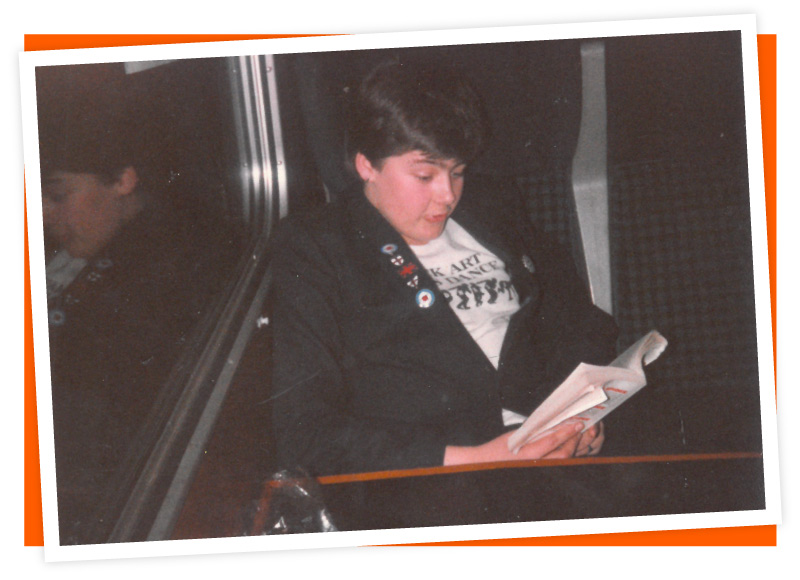
Tony – 80s teen
“When I say I went off the rails, I wasn’t doing anything illegal or anything but totally disengaged from school. I was starting to think about other things, music was becoming more of an influence on me. I only really tended to go to subjects I really liked, like English and I’d started doing Sociology and that was a real eye opener because the music I was listening to was making me start to think more about things. When fourth year started, I was in all the top groups and by the time it came to the exams at the end of the fifth year, I didn’t even bother turning up to any of them. If I hadn’t turned my life around, going back to study as a mature student and make something of my life through working, I probably would have regretted that looking back. But I don’t now because I’ve done it another way, I’ve got where I am another way so I’m glad because I really strongly feel that not everybody is ready to learn at that age. I wasn’t, I didn’t want to learn at that age. I wasn’t receptive. I wasn’t interested. But by the time I got to 21 I really was, and I went back to learning.
I feel really disappointed. I think we’ve let kids down. I often hear that this is the first generation that are going to be worse off than their parents and I don’t think it’s just financially, I think it’s in many ways. So big, big worries about the climate emergency, big worries about the cost of living crisis, jobs. I’m inspired by kids doing things like climate marches, because I hope that they take it in their own hands and do something, because we’re not doing much, our generation is not doing much to help them as far as I can see.”
Eleanor – 80s teen
“I did have my moments but I weren’t particularly up to no good, I just wanted to dance. That’s all I wanted to do. I left school early and went away dancing. I went to Spain. I was just sixteen. There were a lot more available to us as dancers than there is today. I think if they’re dancing now, they’ve either got to get into a West End show or on a cruise ship, and there’s thousands and thousands going for them, whereas when I was doing it, there were always contracts coming up in places. I think there were more jobs about, and I think we were more social, we were more active. I don’t think gadgets have done kids today any good at all, it isolates them. Obviously, we’ve just been in lockdown as well and I think that’s just finished it all off really. We were always at each other’s houses. We were always having sleepovers. We were always at dancing. We danced seven nights a week, and never grumbled about it. The one thing I can think of, there’s a lot more on the telly, there were only four channels on telly then, so there were never anything on the telly that you wanted to watch. And, obviously, we’d no gadgets or anything. So, I were never at home and it didn’t really bother me.”
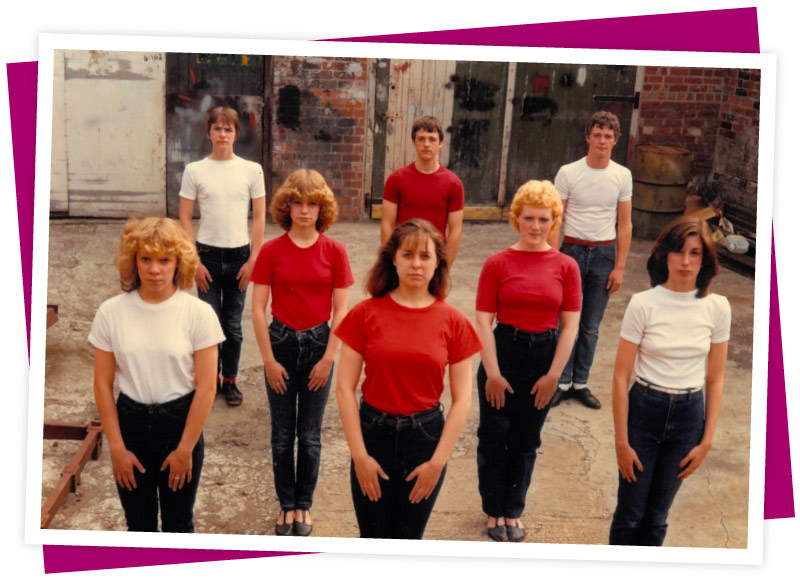
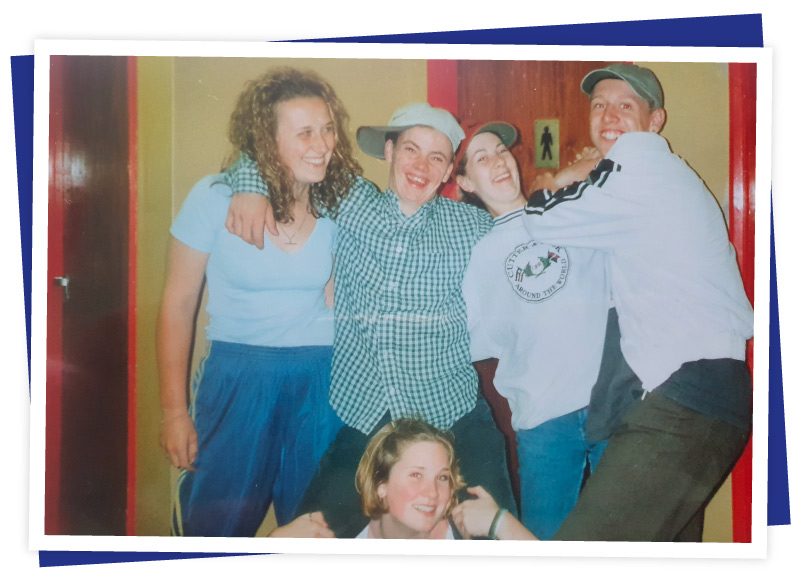
Taryn – 90s teen
“I can remember going to Regent’s Park nightclub on a Thursday night, because it was free in. Like 16, 17 years olds would turn up at Regent’s. I’d have 50p on me to hang my coat up, I drank water and we danced all night and that’s what we did every Thursday. It were more about just getting out and joining the scene and just getting to know people. I think the culture in our area were to let off steam on a Friday night, when everybody went down to the park and had a bottle of cider and all that sort of thing but I think because I was going to pictures with my dad every Friday, I skipped over that. I don’t know whether that kept me dancing and whether that’s why I did it for so long but I think in bigger scheme of things, I were quite sheltered to a lot of that. I wouldn’t want to be a teenager now. There’s no record of personal records from 50 years ago, whereas now everything’s just documented online. And I think they’re just exposed to so much. I think a lot of that naivete has been lost. I think being a teenager today is really difficult. You can’t have fun without some finding out about it. That’s one of the main differences between being a teenager now and a teenager then.”
Andrea – 90s teen
“For me, it’s the freedom young people have. Our parents, they expected us to be more independent, we were encouraged to be more independent and develop those life skills. Now, we still have the same expectations, but we don’t allow it or encourage it, and as a parent of a teenager now it really challenges me because I don’t want her to go anywhere, I want to keep her safe, I want to know everything and everyone. They live in a world where all their discussions take place through social media, but in a very different way. It’s a very superficial way. They don’t ask real questions of each other so therefore, they don’t get to know each other, apart from their close friendship circles. Their communication is much more superficial, they know lots more people but it’s much more light touch. I think the issues are the same that are facing people, you know, those issues of personal safety, building relationships, the feeling of going out into the world and getting jobs, those fears are the same. I think right now we’ve got young people that are seeing so much around them in terms of major events, they are becoming a bit desensitised. You know, when I was aware of that, in my teenage years, I was out campaigning with CND, they are just accepting it almost, there isn’t that sense of political awareness, or kind of that you can do something about it. One of the things that really concerns me in my work is that lack of democratic engagement with young people that they don’t want to vote. I saw much more political activism, much more anger, much more frustration, that people wanted change. Whereas I don’t think young people now are responding in that way. I remember that first vote, I remember the excitement, and the desperate need to want to vote and wanting to vote in age change so we could vote at 16.”
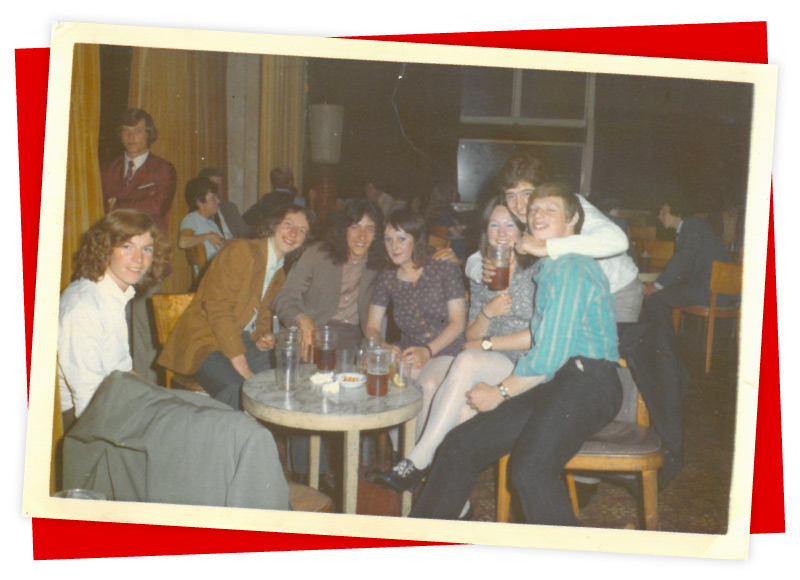
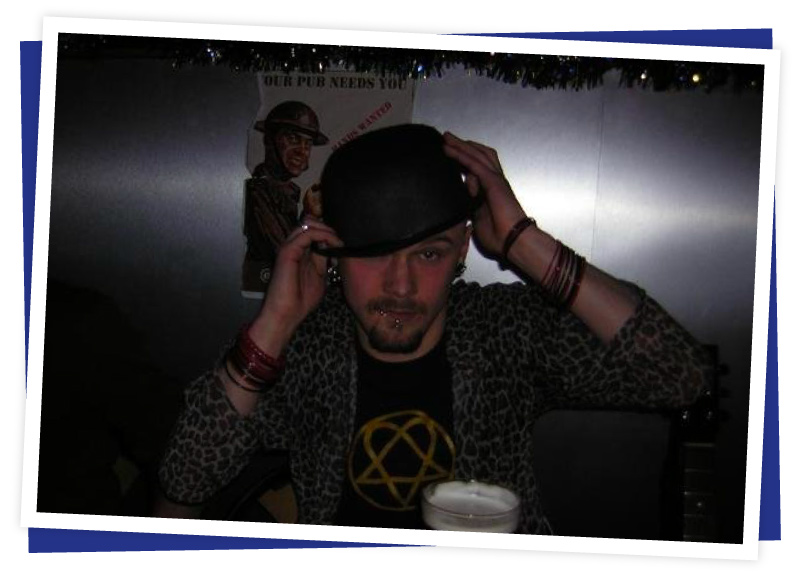
Jason – 90s teen
“There was loads of places that played music and you’d go and watch any kind of live band, whether it was the stuff that you were personally interested in or not. Because of the kind of town it is, you always knew everybody in the bands as well. It was a very supportive scene. And there’s not as much of that now but back then it was quite a scene. And then there were things like zines as well. In the late 90s, there was a zine called Ming Mong, which was a music and comedy fanzine, it was full of gig reviews and comic strips that made fun of the town. I think the live music scene in Barnsley started to really decline only recently, only the last couple years with the loss of decent spaces to play music. When I work with teenagers now, the teens aren’t too dissimilar to the kind of teens that I used to hang around with, when I was 16/17. The way that they dress, with their Goth or Emo clothes, the way they present themselves with their hair and makeup and stuff like that, and the places they hang around in the town centre like Mandela Gardens and the bus station or Peel Square. But when I work with them now, they seem to be coming through with a lot more like mental health problems, it’s different in that respect. Possibly growing up in the age of social media doesn’t help where you’ve got 24 hour access to bad news and bullies. I suppose with social media, always comparing yourself to something else. I’m only making assumptions, but always seeing what you should be looking like and acting like as a teenager and maybe comparing yourself to that. People always used to complain about women’s magazines, and how they set tones for how you should look, whereas teenagers get that 24/7 now and that can never be a good thing.”
